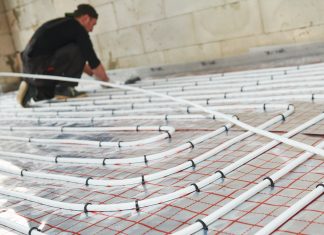As the economy opens back up, many small business owners are ready to invest in growing their businesses again. In Bellingham, the downtown area is bustling with customers and local events, returning to a feeling of pre-pandemic normalcy.
The United States Small Business Association (SBA) is eager to help businesses who are looking for additional working capital or to grow their operations.
During the pandemic, the SBA came to the aid of many small businesses, offering Paycheck Protection Program (PPP) loans. While the PPP expired May 31, 2021, the SBA still has many extremely beneficial lending programs available.
Currently, the SBA is offering expanded perks for loan opportunities through September 30, 2021. First Fed relationship managers are working to make these loans a reality for Whatcom County businesses.
Why an SBA loan?
Compared to conventional 3- or 5-year loans, SBA loans are easier to qualify for and can also offer smaller monthly payments given their longer terms. The loans are designed for small businesses, which the SBA defines as meeting industry-dependent size requirements for both employees and annual receipts. Most companies with less than 500 employees and average yearly receipts under $7.5 million, that can demonstrate a growth trajectory, qualify.
SBA loans are ideal for these businesses, whether the goal is starting up, expanding, or acquiring another business. They also allow a small business to utilize additional working capital for purchasing inventory, equipment, or real estate.
The two most common types of SBA loans are 7(a) loans and 504 loans. In general, there are more 7(a) loans given out than 504s, but the latter loans make up a larger overall dollar amount in lending funds.
Lirio Perez, First Fed’s Commercial Relationship Manager for Whatcom County and an SBA lending expert, says 7(a) loans are ideal for any business wanting additional capital, needing to refinance debt, or wishing to acquire equipment, real estate, or another business. These loans, however, are capped at $5 million.
A 504 loan, meanwhile, is narrower in scope but can be much larger in dollar amounts.
“The 504 allows you to still get that same $5 million in funds from the SBA, but the total loan amount can be larger with additional funding from a financial institution like First Fed,” Perez says.
A 504 loan cannot be used for refinancing or working capital, and instead focuses specifically on land/building purchases or improvements, as well as buying machinery or equipment. This makes them ideal for smaller companies seeing quicker, more substantial growth. “No matter how big or small your loan is, it can have a tremendous effect on the future of your business,” says Erica Slatt, SBA Commercial Relationship Manager at First Fed.

Why Now?
Federal CARES Act funding is currently waiving guarantee fees on 7(a) SBA loans through the September 30 deadline, saving borrowers up to 3.5 percent of their guaranteed loan amount. The SBA also promises to pay your principal and interest up to $9,000 a month for three to six months, depending upon loan circumstances. After the 3-month period, 504 borrowers—depending on their industry—may qualify for an additional three months of these subsidies.
Even the odds of being approved for an SBA loan are improved right now, with guaranteed approval rates of up to 90 percent. Given these generous incentives, Perez says it’s no surprise that he’s seeing additional demand in Washington state businesses seeking SBA loans.
“I think that the market is still interested overall in taking advantage of the low interest rates that we’re finding,” he says. “A lot of people that were sitting on the sidelines before COVID are saying, ‘Hey, this is the interest rate environment we want to lock something in with,’ and so they’re reaching out for SBA-type loans.”
Because loans have to be approved by the September 30 deadline to be eligible for the CARES Act perks, Perez recommends applying as soon as possible. The intricacies of dealing with a governmental agency like the SBA, and the basic number of weeks it takes for the loan application process to play out, leaves limited time left to get new applications in.
A Little Less Complicated
The first step for inquiring about a small business loan through First Fed can take several different forms, from employee referrals to online or phone call inquiries. Regardless of the method, Perez says customers can expect a quick response and professional assessment from an SBA advisor on the best path forward.
“If they knock on my door, what I’m going to spend most of the conversation doing is truly understanding what the end goal is of the transaction,” he explains. “What are you attempting to achieve? Then, I’m going to encourage them one direction or the other, based on the optimal outcome for their long-term goal.”

Relying on a First Fed loan team to streamline the SBA application process is all about making a complicated process feel more straightforward on the borrower’s end. And hopefully, help them achieve whatever goals they have to take their business to the next level.
“First Fed loves supporting local businesses,” Perez says. “We are here to help business owners take advantage of the financial options available.”
Ready to discuss your options? Set up a consultation with Perez, Slatt, and other SBA experts from First Fed (member FDIC): https://www.ourfirstfed.com/business/loans/sba-loans
Sponsored











































